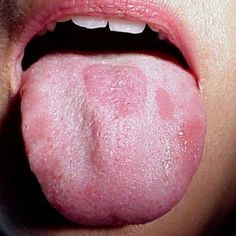Your tongue can reveal a surprising amount about your health. Changes in color, texture, and coating on the tongue can indicate various underlying health conditions. While it may seem minor, paying attention to the state of your tongue can help you detect issues early on. So, what does it mean if your tongue is red, white, or yellow? Let’s break down these common changes and what they could be signaling about your health.

Red Tongue
A bright red tongue can sometimes be alarming, but it doesn’t always mean something serious. However, it could point to certain health conditions or nutrient deficiencies:
- Vitamin Deficiency: A red, swollen tongue may suggest a lack of important vitamins, particularly B vitamins like B12 or folic acid. These nutrients are essential for proper cell function, and without them, your tongue’s appearance might change.
- Scarlet Fever: A red, strawberry-like tongue can be a symptom of scarlet fever, especially in children. This bacterial infection needs prompt medical treatment.
- Kawasaki Disease: This condition, mainly affecting children, can cause a red, swollen tongue along with fever and rashes. It’s rare, but serious, and requires medical attention.
- Glossitis: This refers to the inflammation of the tongue, making it appear smooth, swollen, and red. It can be triggered by allergic reactions, infections, or irritants like tobacco and alcohol.
White Tongue
A white coating or patches on your tongue can result from several health issues, most of which are treatable:
- Oral Thrush: White patches that look like cottage cheese could be a sign of a yeast infection in the mouth, called oral thrush. It’s more common in people with weakened immune systems, the elderly, and babies. Treatment typically involves antifungal medications.
- Leukoplakia: White patches on the tongue, which can’t be easily scraped off, may indicate leukoplakia, a condition that can develop due to chronic irritation from tobacco use or alcohol. While it’s usually benign, it can sometimes be a precursor to oral cancer, so it’s important to get it checked by a doctor.
- Oral Lichen Planus: This condition causes white, lace-like patterns to form on the tongue and inside the mouth. Though the cause is not entirely known, it could be related to immune system issues.
- Dehydration or Dry Mouth: If your tongue looks white and feels dry, it might be due to dehydration or a lack of saliva. Drinking more water and staying hydrated can help improve this condition.
Yellow Tongue
A yellow tongue might look unsettling but is often less serious than it appears. The discoloration is usually temporary and can be caused by a number of factors:
- Poor Oral Hygiene: A buildup of bacteria on the tongue’s surface can lead to a yellowish coating. Regular brushing, flossing, and using a tongue scraper can help prevent this.
- Smoking: Tobacco use can cause your tongue to turn yellow. Over time, it can also lead to more serious oral health issues, so it’s a good idea to cut down or quit if you notice this change.
- Mouth Breathing or Dry Mouth: Both conditions can lead to a yellow-coated tongue. Breathing through the mouth dries out saliva, which normally helps wash away bacteria, leading to discoloration.
- Jaundice: In rare cases, a yellow tongue can be a sign of jaundice, a condition caused by liver or gallbladder problems, where the skin and eyes may also appear yellow. If you suspect jaundice, it’s important to seek medical attention.
What You Can Do
Maintaining good oral hygiene is key to keeping your tongue healthy. Brushing your tongue, along with your teeth, can help remove any buildup of bacteria and prevent discoloration. Drinking plenty of water and staying hydrated is also important for overall oral health.
If you notice persistent changes in the color or texture of your tongue, it’s always a good idea to consult a healthcare provider. While some tongue changes are harmless, others can be signs of more serious health conditions that require medical attention.
By being aware of what your tongue is telling you, you can catch potential health issues early and take steps to maintain a healthier body. So, the next time you brush your teeth, take a moment to inspect your tongue — it just might give you valuable insights into your overall well-being.
Leave a Reply